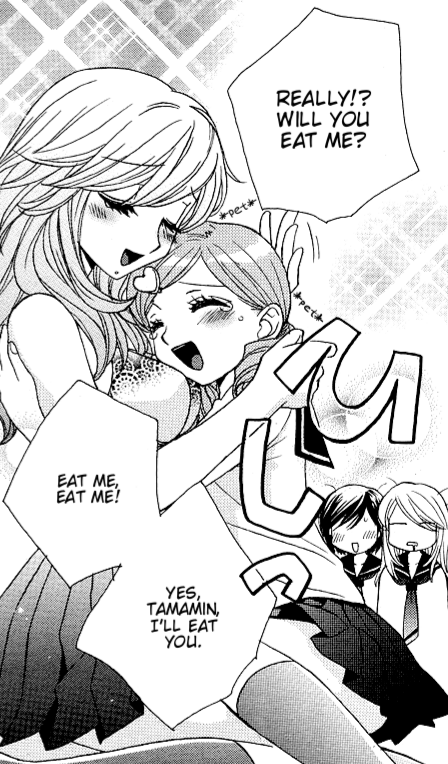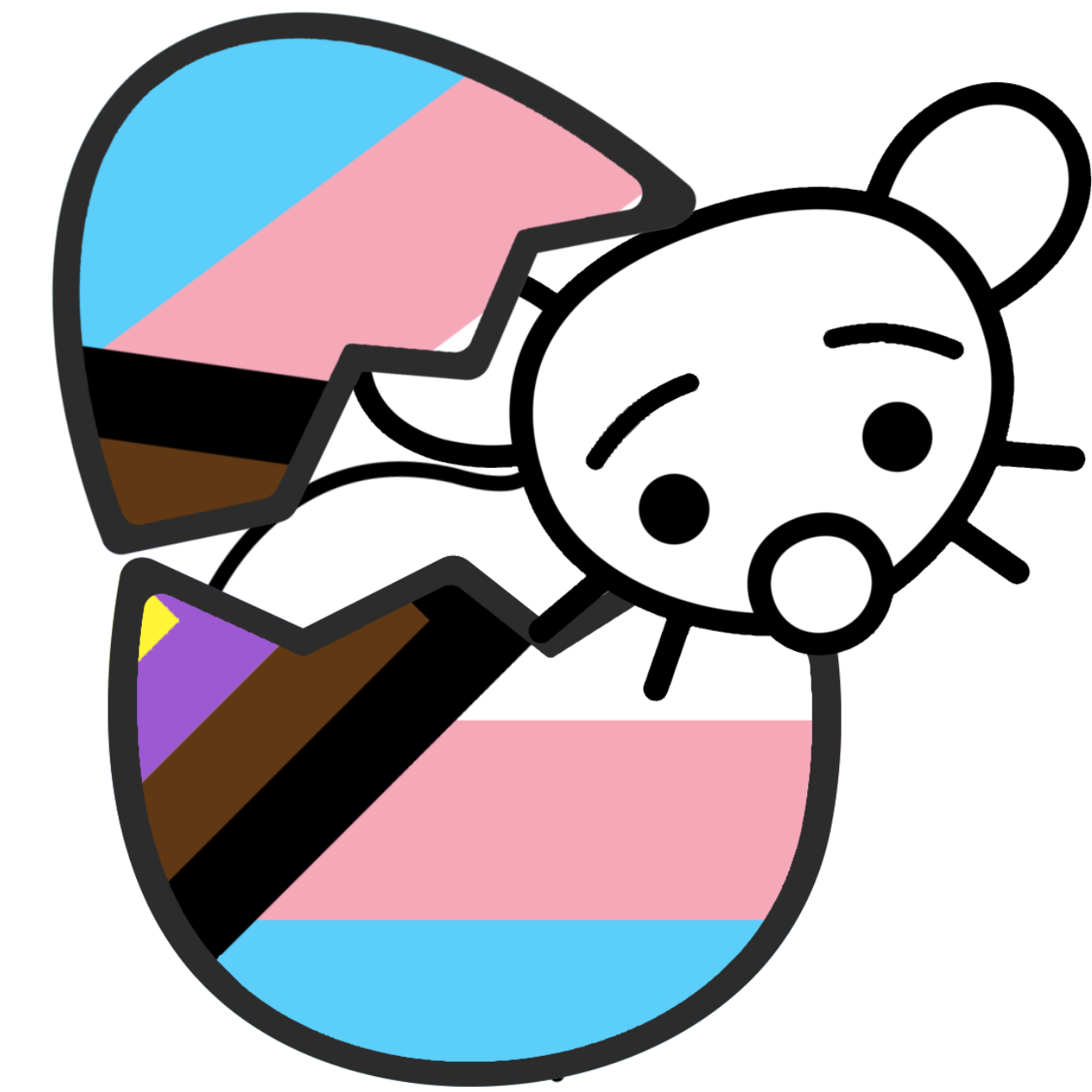


I swear I’m not Jessica



I’m happy to be capable of dismantling most bigots online. I understand how they think and what hurts them enough to keep them away. I rarely need to block because I’m not fun to attack.
They probably never live long enough to be this old and out of shape. If they can’t run away, they’re easy pickings for wolves and panthers. Humans are lucky that we can defend those who are unable to defend themselves. Baby deer come out prepared for running. Our babies can’t lay on their stomachs for months.
The only times when it’s ok to take a life is when there are NO other options.
Ruthless capitalists can cause more death and suffering than any serial killer or mass shooter. In many ways, they’re a group so driven by calculating costs and benefits that the threat of death would be more effective as a deterrent than for anyone else.
However, even these people don’t deserve to die if you can simply prevent them from holding that power instead. All that matters is that they can’t do more harm. Unless they insist on defending their wealth like scarface, just prevent them from being that powerful ever again.
grabs your ears and starts rubbing them
You silly goose. If you want to eat me, all you have to do is ask :3
If it was, there’d be obvious labels on all the characters.


You can overdose on anything. The real questions are how much you need to overdose and what organ will breakdown first.
I walnut be watching her
I get that feeling of beating the odds. Nothing in my life has ever been harder than simply existing pretransition.
Honestly, I’m torn on how I view my past self. I don’t see “him” as a different person in any way except externally. That appearance and mind never really meshed, so it doesn’t feel like a separate person (aside from the usual age thing).
Past me was not really a he, just someone who clung to the role she was given because she desperately wanted to be normal. It’s hard being totally abnormal and hating it for your entire adolescence. I’ve wanted to destroy the person I was for as long as I remember, so I never really saw it as a full person, just an empty costume I was stuck in.
The big thing I didn’t realize was that the part I hated was the gender. At first, I hadn’t even suspected that it could be my problem. I didn’t feel a clear urge to get rid of it or discard it, only feeling displeasure while wearing it that just couldn’t be placed. I always would have been so much happier as a girl, but I had barely a clue. I truely didn’t know or suspect that “woman” would fit like a glove I was always meant to have.
It was hard to realize that my male outfit didn’t fit and was killing me. It was even harder to accept that I wanted a cozy femme outfit, not to simply to discard my old one.
My identity needed to be torn down and rebuilt, but I didn’t even need tools to dismantle that cardboard shack. I needed to know that the shack was killing me, that I could tear it down, and that I could build a new home.


I like my natural eyeshadow 😌
Sounds like something a cutie would say! Cute people often deny their own cuteness 😘
The most impressive part is how this isn’t even informed by US imperialism. It’s in the US’s interest to stop the genocide in Gaza and prevent costly wars that could cripple global trade. Them funneling guns into Ukraine is probably the best return on investment they could ask for. It’s foreign interests keeping the Democrats with Israel and the Republicans with Russia.


I also only transitioned because my back was against the wall. I was lucky to have the intensive mental healthcare needed to recover from such a place, but I couldn’t have done it if I never came out. It did automatically fix some problems I could never deal with before, but more than anything, it made my problems solvable. The biggest thing transition gave me was the ability to love myself.
In my personal experience, the number one challenge with treatment resistant depression is self hatred. The shame of being worthless and despicable. If you view yourself as inherently bad rather than as a person who did a bad thing, it’s much harder or even impossible to make progress. It becomes self fulfilling, with wins not sticking and losses piling up. That is often what holds people back from recovery; the enemy of living a good life.
The treatment is a arduous process of being greatful for everything good and not defining yourself as inherently bad. You can amend the wrongs rather than letting them define you. You are a good person deserving of love, so it’d be a shame to not love yourself. This is less about stroking your ego and more about cherishing yourself for all that you’re worth.
Most people go through life without getting all the joy they can out of all the good. All things in life, from the good to the bad, are only here for a brief moment. Whether you’re sad or happy, always remember: This too shall pass. The sun will fade and the final eclipse will shadow the earth, so make sure to not let self hatred of any kind destroy those moments.
You will need to fight off self hatred for the rest of your life. You can’t put down your weapons or “fix” it once and for all. It will be tiring, but worth it.


Your use of words like “misinterpret” instead of “interpret” and “illusion” instead of “perception” makes me think your issue is normative rather than descriptive. It isn’t about whether you are trans, but whether you should be trans. Getting from is to ought in this way exists in the realm of ethics, not epistemology.
It’s important to understand how we can get from is to ought within the neurological view I talked about earlier. The first thing to understand is how and why our brain forms the connections that it does.
One important mechanism for our brains making connections is Hebbian learning: neurons that fire together wire together. If concepts occur in tandem with one another more frequently, like feminine and submissive, then they become implicitly associated with one another, allowing you to more easily bring up one idea when thinking about the other. This is how decades of popular culture depicting certain ethnic or racial groups as criminals can cause implicit bias to form without the person ever believing in it explicitly.
However, the brain can also modulate connection forming with far fewer similtaneous exposures. Think of frightening experiences causing a sudden phobia of whatever the person was experiencing at the time. If you get scared around a fluffy animal enough times, you might become scared of the animal without the scary thing itself. This is caused by “reward” or “reinforcement” mechanisms encouraging stronger associations to form in certain circumstances. The brain evolved to make connections form more strongly when the stimulus is more salient.
It may not be obvious, but this gives insight into how and why we want. We want because it helps us survive, from wanting to get away from that which is bad for survival and seeking that which is good for it. A lot of these wants like hunger or the desire to breathe are buried deep in our brains, as if we don’t satisfy them, we die. You can’t force yourself to suffocate by holding your breath, as you will fall unconscious and your brain will automatically start breathing. We want certain things and sometimes cannot change that. Even if we manage to hold off on eating till we die, we’ll be hungry till the end.
You may be asking why I’m focusing on wants rather than trying to answer an ethical question, but I’m doing this because I realized ethics has always been about what we want. We bridge the is/ought canyon by wondering where else our sense of what “should be” can originate. We evolved to want survival, so we think we should survive. We want pleasure, so we think we ought to have it. We want companionship, money, life, liberty, and happiness. We need no better justification than wanting it finding a way to exist with other people and their wants.
…
Finally circling back to your inability to fully accept that you ought to be a woman, you need to accept that your wanting it is enough. You clearly want to be a woman more than anything else, and other people being bigoted is all the stands against it on the side of other people’s wants. You deserve the same thing you think we all do.


If you like epistemology, then I have some thoughts that might help.
At a neurological level, our brain seems to store information in terms of essence. To simplify and generalize the raw information our sensory organs capture, multiple stages of compression break it into something we can efficiently work with. For vision, your brain breaks info into elements like lines movement, color. From there, it tries to place the subject and the context, identifying what it sees and where it is separately.
The fun part of this system is that it does a lot of generation. The raw image you receive from your eyes looks like shit. It’s mostly light and dark, with a small section of 8k full color and a blind spot right under it. We perceive reality like a movie by constantly moving that 8k part to get as much info as possible. Our brain fills in any missing details with what it thinks should be there.
We understand the world by simulating it in our minds. Like an AI generation model, it builds a version of reality using the interconnected schemas we piece together over our lifetime. Our memories and past experiences are saved as generative prompts of what happened, not what actually happened. Every single time you remember something, you’re not accessing a detailed file, but generating it from scratch using key details and connections.
The end result of using fallible essences to build our reality is that we often struggle when they reveal their inaccuracy. When ideas are central to our being, understandings indispensable to our entire view of the world, we try everything possible to preserve it.
Realizing you are trans feels like a Matrix level reversal of reality because it truly is. There is no reality we exist in other than the one our mind builds. Having such a core paradigm overturned feels like the world was turned on its head and pulled inside out. It’s hard to let go of that old reality emotionally, as without it you free fall through uncertainty.
It’s hard, but rejecting solipsism will get you to the most likely epistemological truth: We will never escape this cave. We can never perceive anything but shadows of what’s out there. Even our most well tested and fundamental theories of science rely on shadows that tell an incomplete story. If we found an understanding of everything, it would still be a shadow. The most generalizable shadow, but still only a representation of the true form.
…
There’s always a chance you’re wrong about your identity, but with the abandonment of certainty comes the rejection of deduction. You can’t prove that you have the “transfem essence” because no essence can be proven for reality.
Medical disorders? Tools fundamentally relative to place and time. Taxonomic definitions? Created for convenience. Quantum particles? They ain’t truly particles, just quantized bits! We made it ALL the fuck up.
You probably can’t find that certainty. It’s most likely impossible. The best we can do is choose the most likely option and move on. You’ve started your transition. Being cis isn’t the null; being trans is.
What’s stopping you from crying in a school uniform?